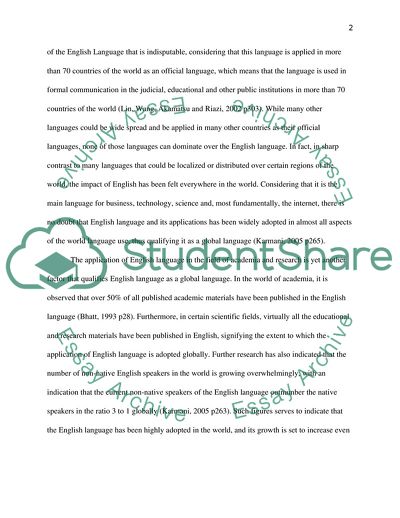Cite this document
(English and Globalization the Incorporation of the Language in Vario Essay, n.d.)
English and Globalization the Incorporation of the Language in Vario Essay. https://studentshare.org/english/1799724-linguistic-imperialism
English and Globalization the Incorporation of the Language in Vario Essay. https://studentshare.org/english/1799724-linguistic-imperialism
(English and Globalization the Incorporation of the Language in Vario Essay)
English and Globalization the Incorporation of the Language in Vario Essay. https://studentshare.org/english/1799724-linguistic-imperialism.
English and Globalization the Incorporation of the Language in Vario Essay. https://studentshare.org/english/1799724-linguistic-imperialism.
“English and Globalization the Incorporation of the Language in Vario Essay”. https://studentshare.org/english/1799724-linguistic-imperialism.


